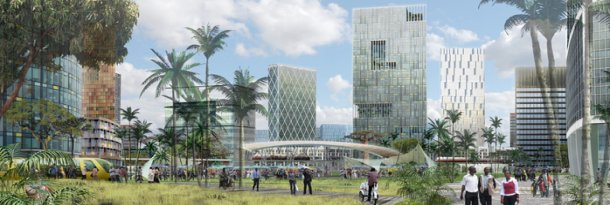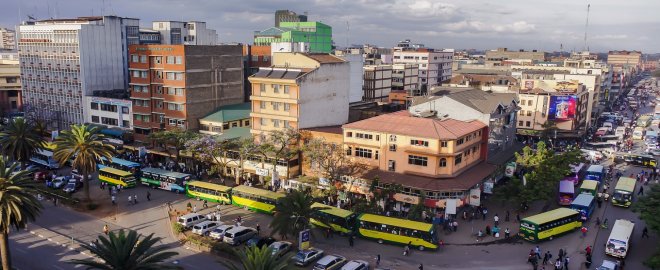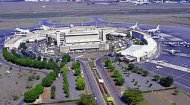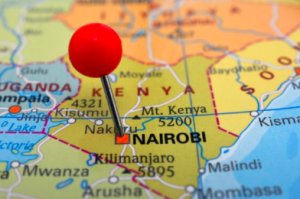|
|
Nairobi Profile |
Nairobi Profile |
Nairobi Profile | Nairobi Profile |
|
|

|
Nairobi is the financial and commercial centre of Kenya, housing the headquarters of numerous national and multinational companies, given its strategic location and its standing as the economic and financial hub of East Africa. Its burgeoning professional class have attracted significant foreign investment, making the city a gateway for trade and business into the wider African continent. The financial services sector is robust, with Nairobi hosting the Nairobi Securities Exchange (NSE), one of Africa's largest stock exchanges, and numerous regional headquarters of international banks and financial institutions. Nairobi has also earned the moniker "Silicon Savannah" due to its rapidly expanding technology sector. It hosts a vibrant ecosystem of tech startups, innovation hubs, and incubators, attracting venture capital and fostering a new generation of entrepreneurs. Major global tech companies have established their regional offices there, drawn by a young, educated workforce and growing digital penetration. Manufacturing, retail, real estate, and professional services further contribute to the city's economic dynamism. Furthermore, Nairobi is one of only four cities globally that hosts a major United Nations headquarters, solidifying its role as an international diplomatic centre. The city's infrastructure faces ongoing challenges, including traffic congestion, pollution, and poverty. However, the Kenyan government and various development partners are working together to address these issues to accommodate a still growing population, coupled with an inevitable increasing demand for services. The Jomo Kenyatta International Airport, located 15 kilometres southeast of the city centre, serves as the primary gateway to Kenya and the rest of East Africa. The city's transportation system itself includes an extensive network of roads, railways, and public transport options, such as buses, matatus (minibus taxis), and the Nairobi Commuter Rail service. As a melting pot for Kenya's more than 40 different ethnic groups, alongside a significant diaspora and expatriate community, the city pulses with an eclectic mix of traditions, languages, and artistic expressions. Swahili and English are the official languages, but the streets resonate with a cacophony of local dialects and the popular urban slang, Sheng, a dynamic blend of Swahili, English, and local languages. Nairobians embrace a bustling, yet often laid-back lifestyle. Weekends see parks like Uhuru Gardens filled with families, while the city's numerous restaurants serve up everything from traditional nyama choma (grilled meat) and sukuma wiki (collard greens) to international gourmet cuisine. Although Nairobi, known as the 'Green City in the Sun', has a modern city centre with many attractive features, like many other cities it has a darker side for Nairobi is home to tens of thousands of street children who have contributed to its nickname 'Nairobbery' and also houses Africa's third largest slum some three miles from the city centre at Kibera (see link). Many of those who live in Kibera make the daily journey into Nairobi, desperate to make money to support themselves and their children, offering a range of services for the equivalent of just a few pence a day. Nairobi is a popular tourist destination, offering a wide range of attractions and activities. Try to visit the Nairobi National Museum, which is about 10 minutes drive from the city centre. Opened in 1929, the museum has collections exploring Kenya's history, nature and culture as well as featuring contemporary art. The botanical gardens at the site are also a great place to chill out. For train enthusiasts, the Nairobi Railway Museum, next to Nairobi's main railway station, is worth a look as it has a history of the now-defunct East African Railways. Opened in 1971, the museum also houses models of railway engines that operated on the 'lunatic line' to Uganda (so named given the huge amount of money it cost to build with such a high cost of life), photographs of the railway throughout its history and other artifacts including an interesting motorized railway bicycle that, history records, did not go on to dominate world transport! Yet. Nairobi is also a good place to stay for those wanting to visit the nearby Nairobi National Park, the only national park within a city's boundaries. The park is home to an abundance of wildlife, including lions, leopards, rhinos, and giraffes, making it a popular spot for safaris and wildlife viewing. Other popular tourist attractions in Nairobi include the Karen Blixen Museum, which was once the home of the famous Danish author of "Out of Africa", the Bomas of Kenya, a cultural center that offers visitors a glimpse into Kenya's diverse tribal cultures, the Karura Forest reserve and the Giraffe Centre, about twelve miles outside the city and established to protect giraffes. The arts scene in Nairobi is particularly dynamic. Music is deeply embedded in the city's fabric, ranging from traditional Kenyan rhythms and Benga to the contemporary sounds of Gengetone and Afrobeat, often heard reverberating from matatus (public mini-buses) and entertainment venues. Theatre thrives at venues like the Kenya National Theatre and Alliance Française, showcasing both classic plays and innovative local productions. Visual arts are gaining prominence, with numerous galleries and art spaces promoting Kenyan and East African artists, reflecting the nation's diverse landscapes, social commentaries, and rich heritage. Nairobi is also known for its vibrant nightlife, with numerous bars, restaurants, and clubs catering to a wide range of tastes and preferences. The city's cuisine is a reflection of its diverse population, with a wide variety of local and international dishes available. The city is an important centre for education, with numerous schools, colleges, and universities located within the city. The University of Nairobi, founded in 1956, is the oldest and largest public university in Kenya. Other notable institutions of higher learning in Nairobi include Kenyatta University, Strathmore University, and the United States International University-Africa. |









